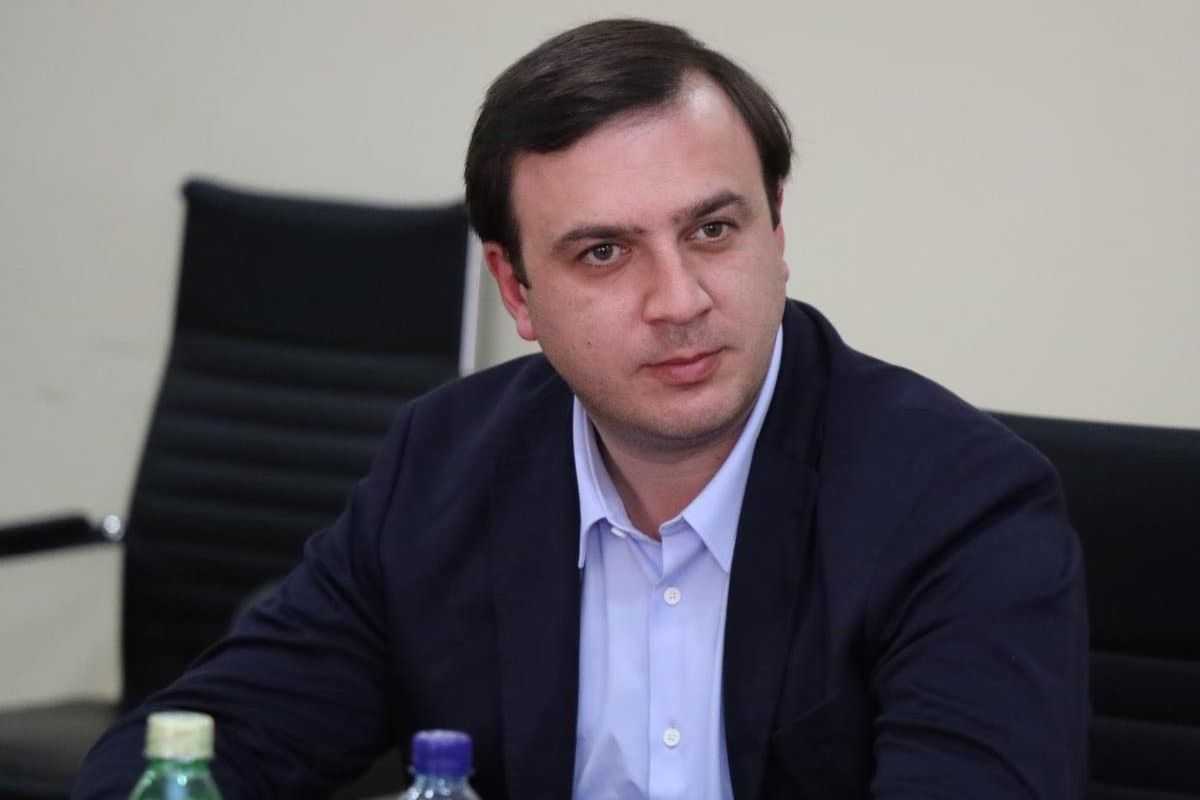
The speaker of the Georgian parliament has criticised the US aid agency, USAID, for funding ‘propaganda against the Georgian Church’ and ‘financing religious intolerance’.
On Saturday, Shalva Papuashvili also accused ‘so-called civil activists’ and ‘media belonging to the [opposition parties United] National Movement and Lelo’ of attacking the Georgian Orthodox Church.
Papuashvili was referring to criticism of the Church for its handling of a scandal surrounding an icon that featured Joseph Stalin.
[Read more: Formal investigation and far-right demonstration prompted by paint on controversial Stalin icon]
The Georgian government previously attacked USAID in October, when they accused USAID of ‘inspiring riots’ in the country and training groups that planned to carry out a coup.
Papuashvili singled out Beka Mindiashvili, the chair of the Tolerance Centre, which operates under the Public Defender’s Office. He accused Mindiashvili of ‘religious intolerance, hostile rhetoric and hate speech’.
Papuashvili then directed his criticism at USAID, which provides financing to the centre, stating that ‘time and again USAID is at the epicentre of scandals’.
‘I am deeply convinced that financing religious intolerance in another country is not in the interests of the American people’, he added.
Papuashvili also urged other institutional donors to check whether they were financing projects ‘contrary to our shared values in the field of human rights and are aimed at radicalising society’.
He then went on to suggest additional legislation was necessary to avoid such situations, an apparent reference to Georgian Dream’s aborted attempt to introduce a foreign agent law early last year.
[Read on OC Media: Georgian foreign agent law to be dropped after second night of protests rock Tbilisi]
These comments raised alarm bells among some civil society organisations in Georgia, with ten such groups accusing the speaker of ‘re-actualising the law on foreign agents’.
USAID responded to the speaker by stating that it worked with many organisations to support religious tolerance in Georgia.
Responding to Papuashvili, Mindiashvili wrote on Friday that the speaker’s comments constituted a ‘gross violation of the ethics of a high political official’.
‘The parliamentary speaker is incompetent when discussing and evaluating issues of a religious and theological nature’, Mindiashvili wrote. ‘In this respect, his attempt to “protect” the church is hypocritical’.
Mindiashvili told OC Media that the Georgian Orthodox Church had demanded the centre’s closure since it’s inception in 2005.
‘There have previously been attacks from the government’, he said, ‘and now this has reached a radical form — in this case directly from the speaker of parliament using the tribune of the parliament to attack us.’
‘[This is] ridiculous and grotesque on the one hand, and on the other hand, a sign of a pathetic and moral low point, directly from the speaker of the parliament in this case.’
The Public Defender stands on the sidelines
A number of civil rights organisations in Georgia have defended Mindiashvili against Papuashvili’s attacks.
On Monday, the Council of Religions, a forum of minority religious associations operating in Georgia, reportedly expressed trust in Mindiashvili and stated that ‘as for his statements about this or that theological or church events, even if they are polemical and acute, this is his freedom of expression as a theologian’.
‘We consider censorship or assessment by the state as unacceptable because such interference may hinder the natural development of democratic processes’, the statement reads.
However, the Public Defender’s Office, under which the Tolerance Centre operates, distanced itself from the centre and its work.
During his attack, Papuashvili said the centre ‘casts a shadow on the institution of the Public Defender’.
On Saturday, Public Defender Levan Ioseliani said the centre was outside his office’s jurisdiction. He also appeared to criticise Mindiashvili, stating that ‘when it comes to religion, I think that people should show more responsibility and caution’.
Mindiashvili told OC Media that although the centre in practice operated independently from the Public Defender’s Office, it was established as part of Law on the Public Defender’s Office. The law states that the Public Defender determines all aspects of centres established under their office.









